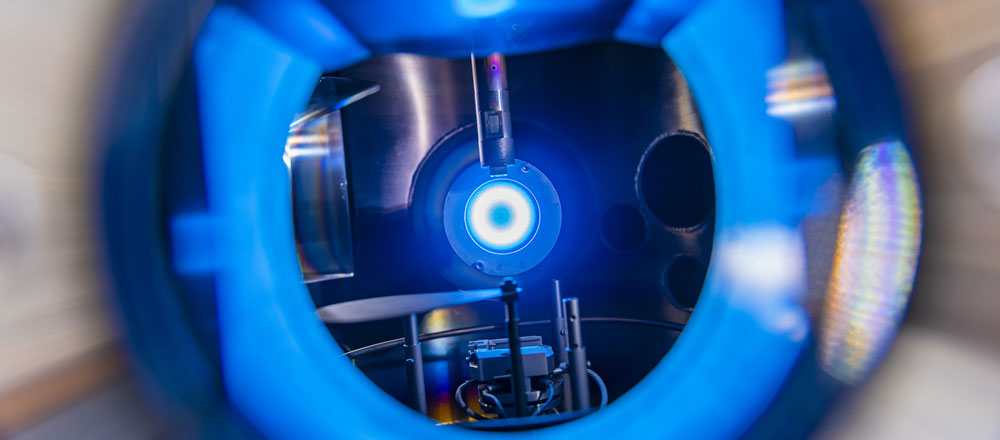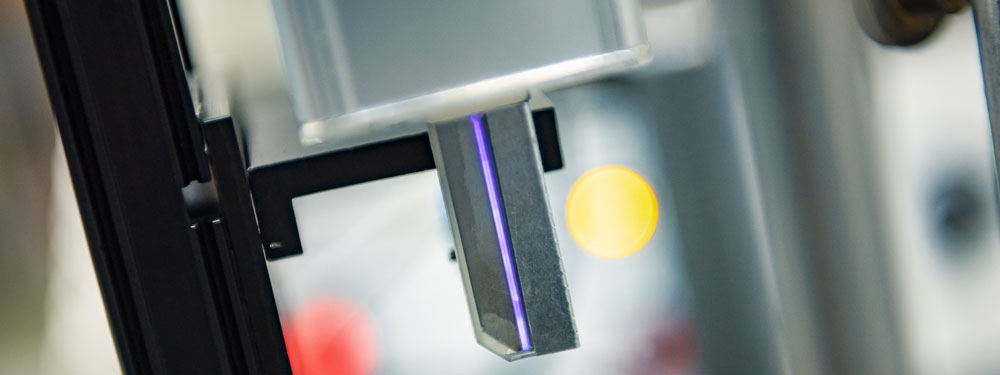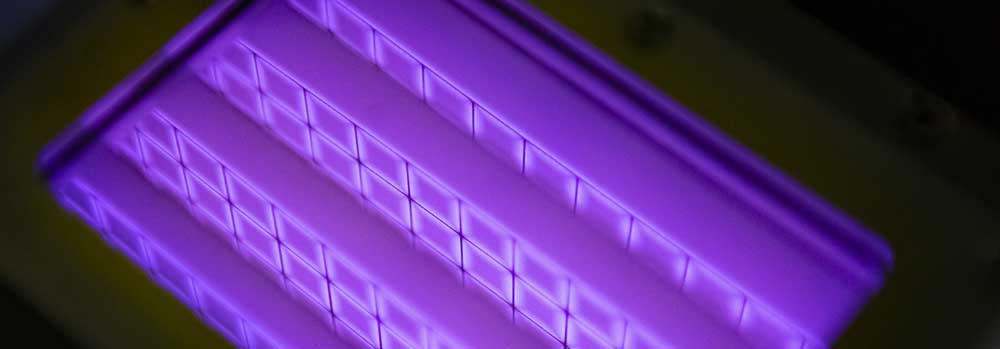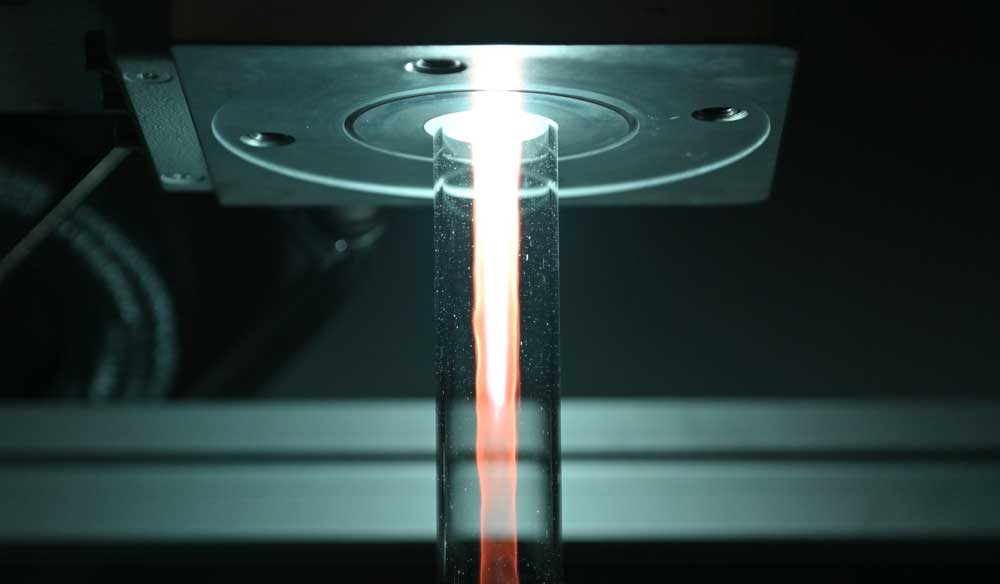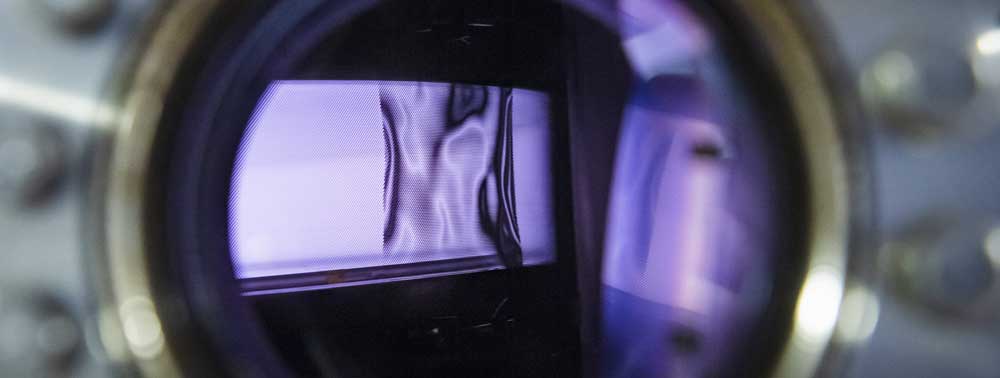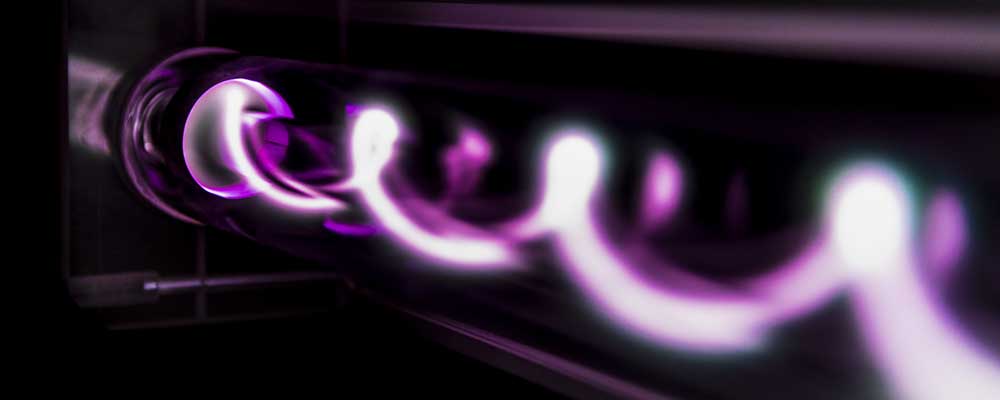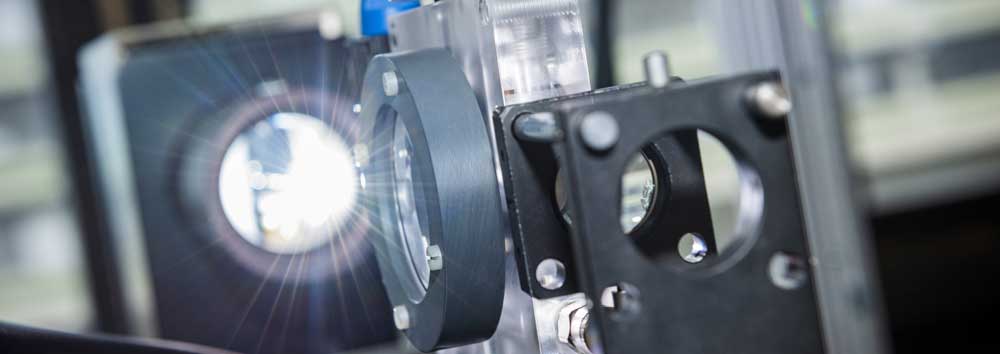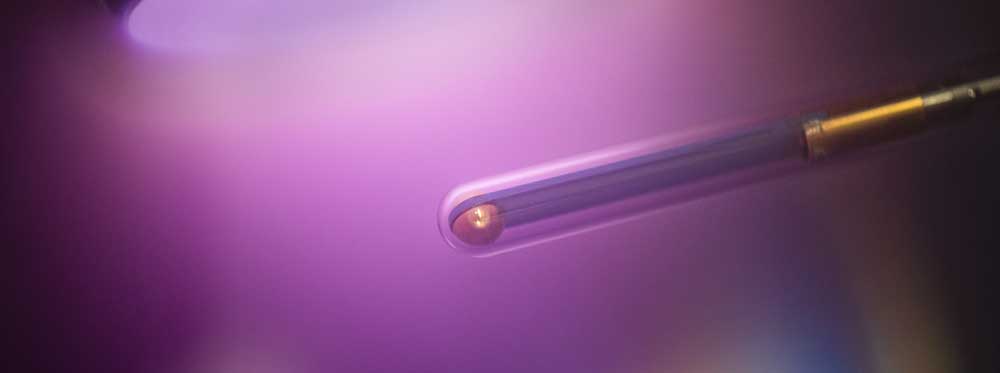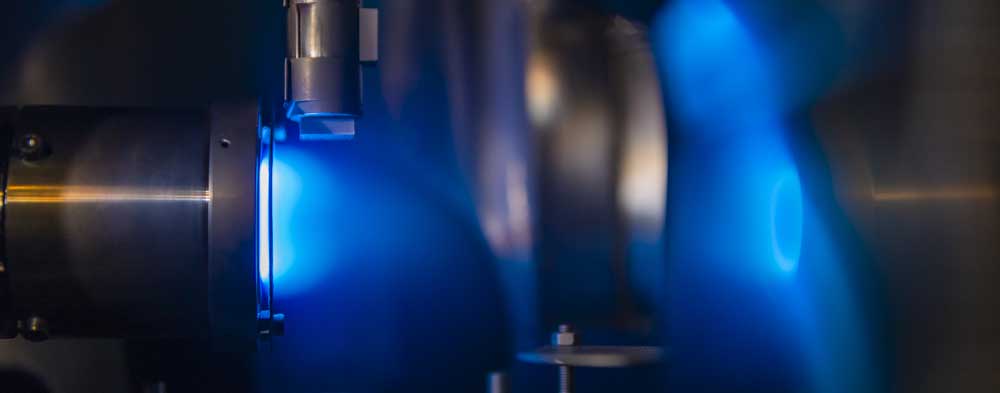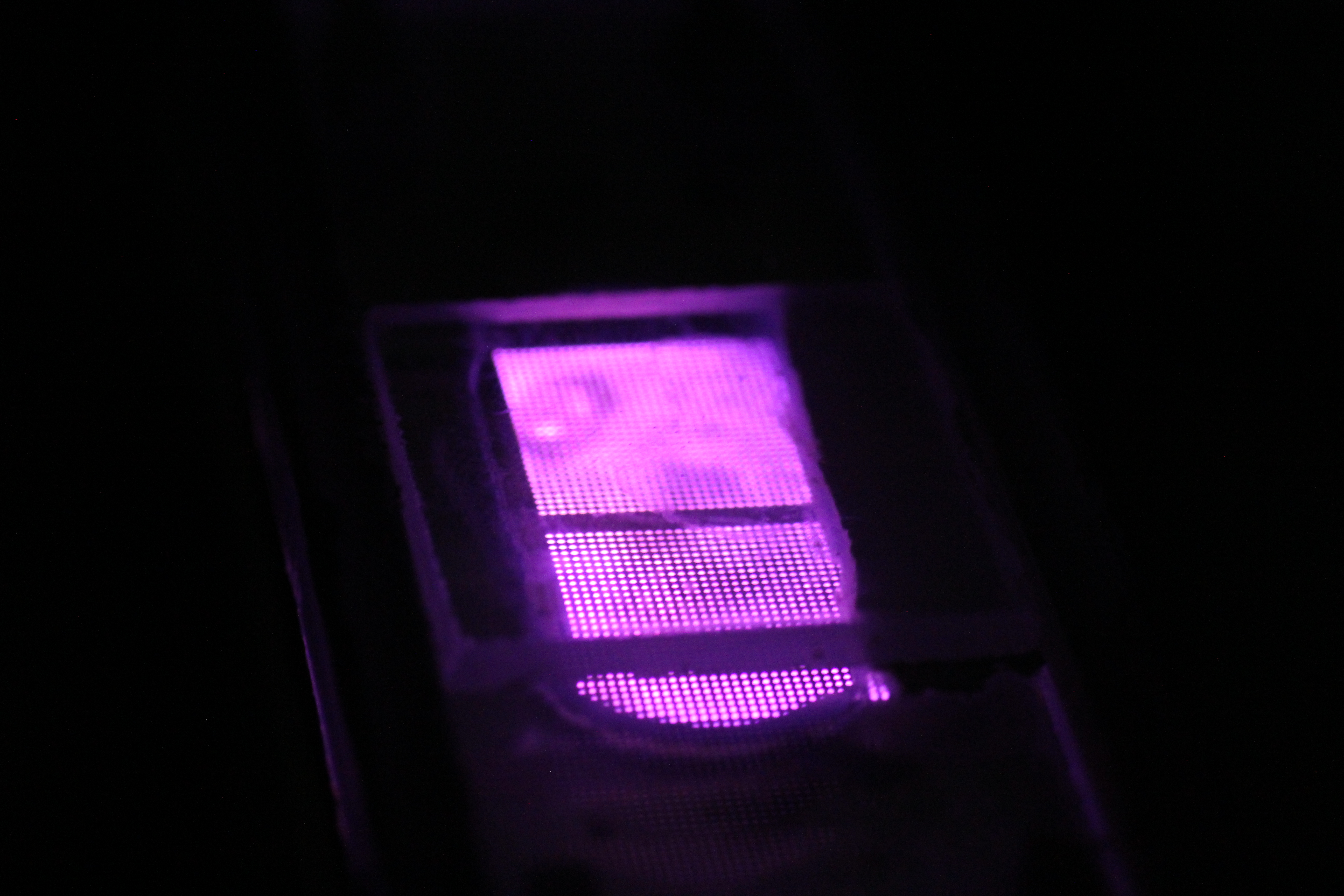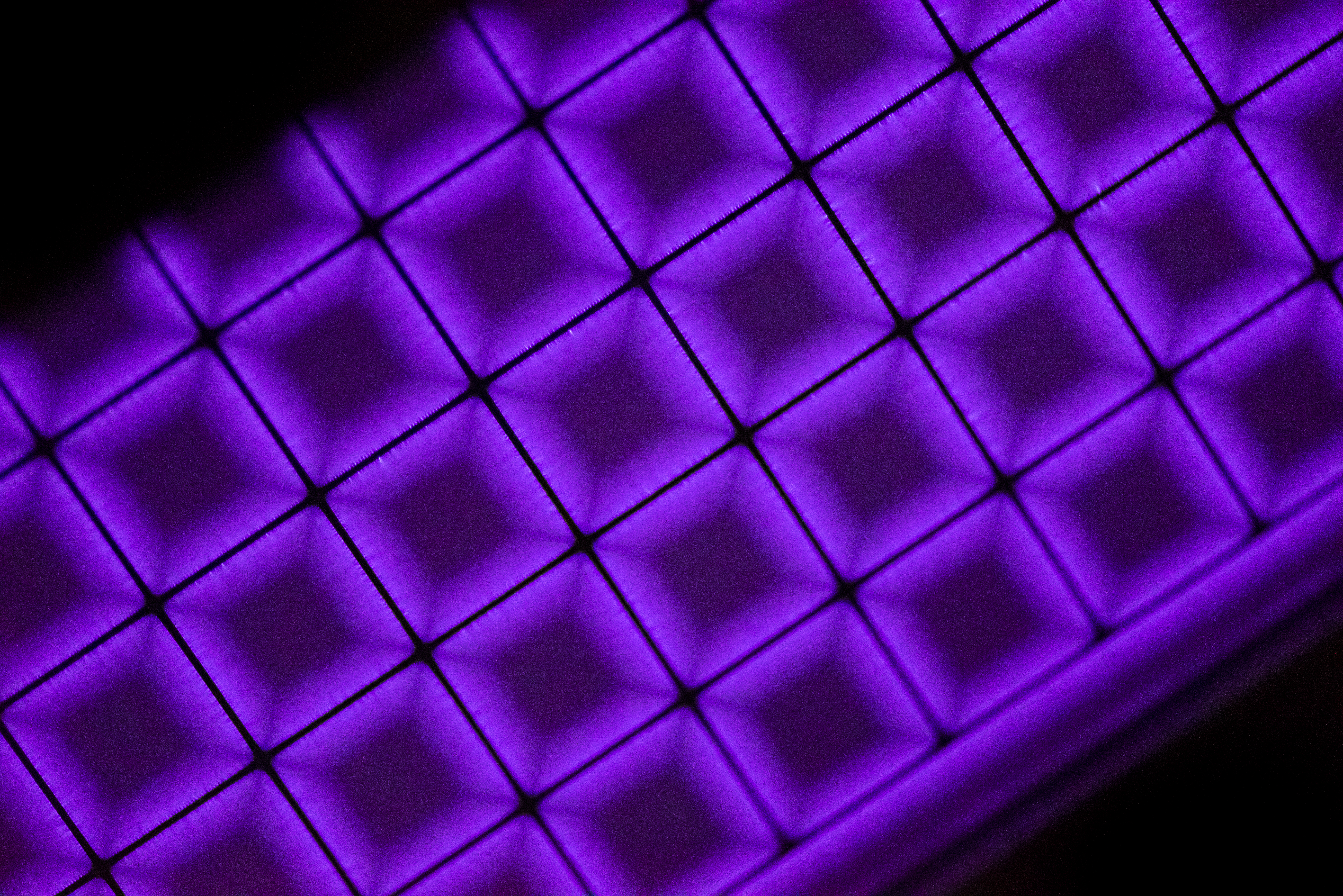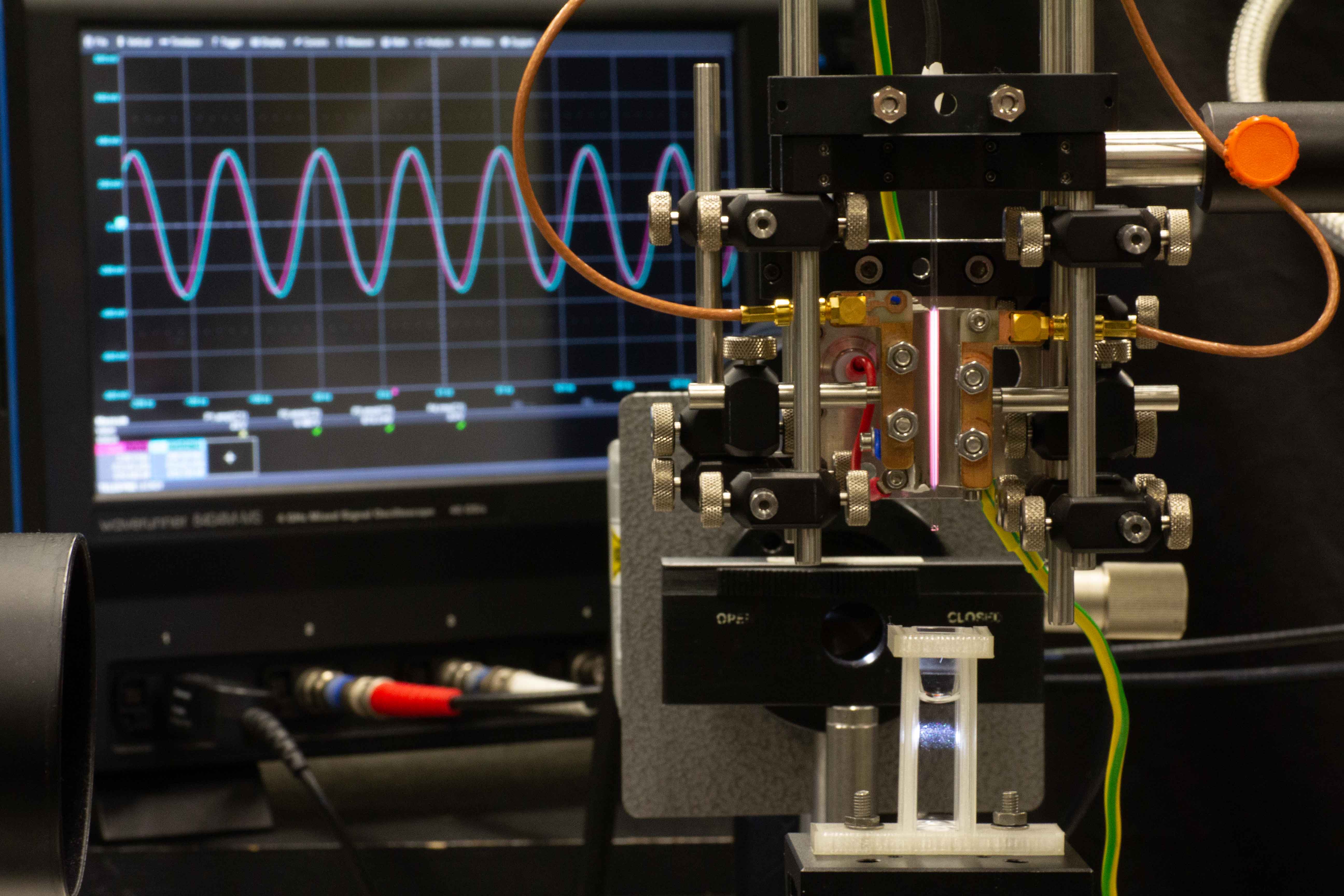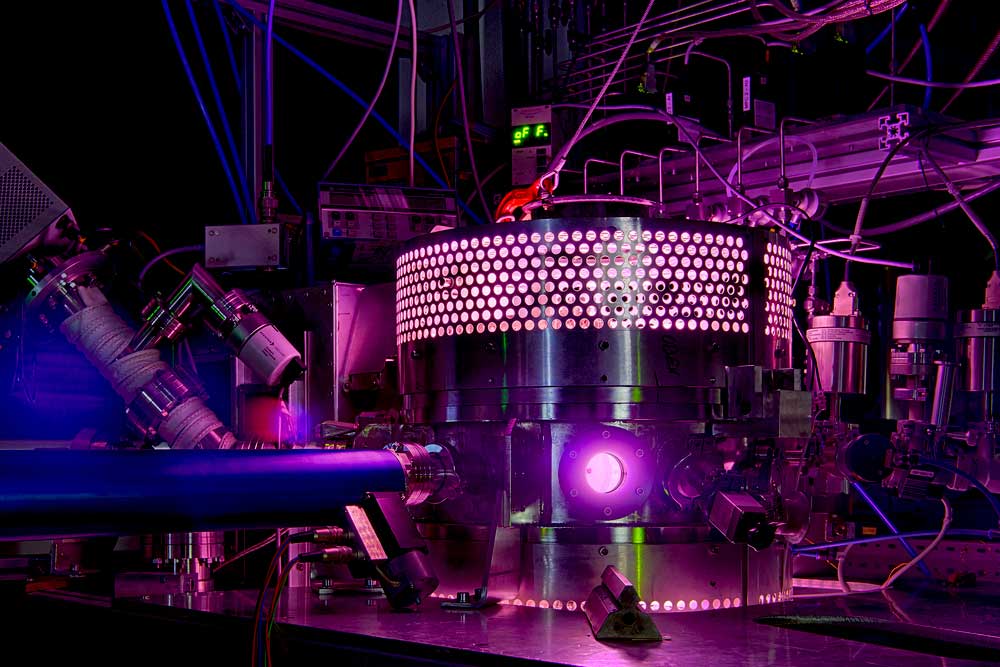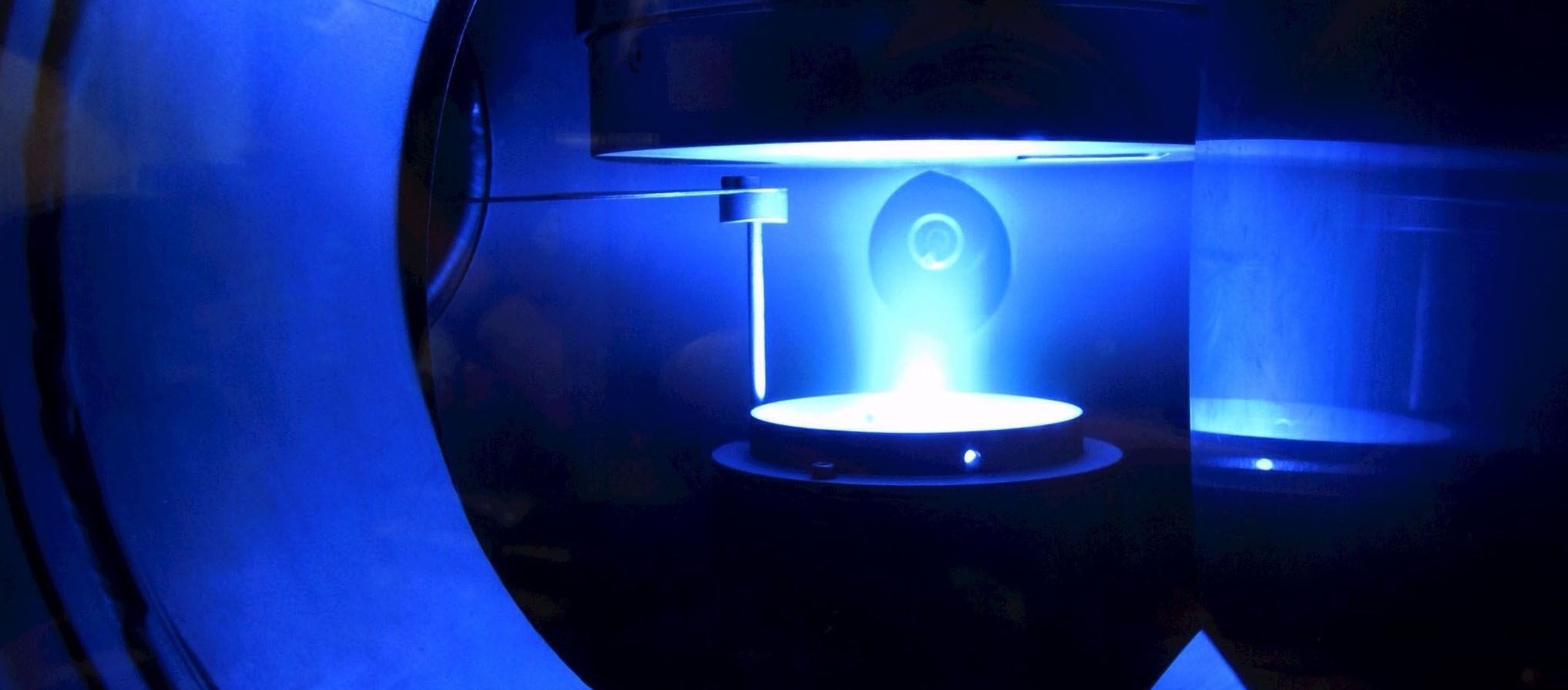- Details
6TH IWM IN PARIS VOM 3.-6. APRIL 2011
A large group of researchers from the research group participated in the 6th International Workshop on Microplasmas in Paris. In total they presented a number of 15 contributions. The intent of the workshop is to bring together researchers from around the world to report on recent progress in understanding and in controlling the properties of plasmas generated in confined geometries.
Benedikt Niermann, one of our PhD students owns one of the Best Poster Awards for his contribution entitled "Measurement and simulation of Ar and He metastable density profiles in radio-frequency micro-plasma jets" in cooperation with Torben Hemke, Marc Böke, Thomas Mussenbrock, Ralf Peter Brinkmann, and Jörg Winter. Congratulations!
- Details
COOPERATION AGREEMENT WITH NAGOYA UNIVERSITY
Prof. Dr. Uwe Czarnetzki, as Dean of the Faculty of Physics and Astronomy, extended the cooperation agreement with Nagoya University in Japan on behalf of Ruhr-Universität Bochum in early March in Japan. This is an agreement between the RUB, the Faculty of Physics and Astronomy and the Faculty of Electrical Engineering and Information Technology with Nagoya University and the Faculty for Electrical Engineering. This involves the now indefinite continuation of a framework agreement for the exchange of students and scientists. In recent years, more than 20 students and scientists have been exchanged under the old agreement.
- Details
Ankara
30.03.2011 - BENEDIKT NIERMANN AN DER BILKENT UNIVERSITÄT IN ANKARA, TÜRKEI
Vom 26.03.2011 bis 31.03.2011 besucht Benedikt Niermann die Gruppe von Professor Ömer Ilday am Institut für Physik der Universität Ankara, um dort gemeinsame Messungen zur Laser-gestützten Zündung von Mikroplasmen zu unternehmen. Schwerpunkte sind dabei Messungen zur Beeinflussung der Zündcharakteristik von Mikroplasmen durch Variation von Pulsenergien, Pulslängen, und Peakintensitäten faserbasierter Laser im Nano- bis Femtosekunden-Bereich. Darüber hinaus wurden erste spektroskopische Messungen mithilfe von Laser-erzeugten Superkontinuum-Spektren an einem Mikroplasma-Jet durchgeführt.
- Details
NATO ARW: PLASMA BIO-DECONTAMINATION
Jan Lackmann, PhD student with Jun.-Prof. Julia Bandow, participated in the NATO Advanced Research Workshop: "Plasma for bio-decontamination, medicine, and food security" (NATO ARW: Plasma bio-decontamination) in Demänovská dolina, Slovakia, March 14-18, 2011. He gave a presentation on "Characterization of damage to bacteria and biomacromolecules by (V)UV radiation and particles generated by a microscale atmospheric pressure plasma jet" (Lackmann, S. Schneider, F. Narberhaus, J. Benedikt, J. Bandow).
- Details
PLASMATECHNOLOGIETAGUNG PT15
Prof. Achim von Keudell, Dr. Tim Baloniak and Marina Prenzel represented the Research Department "Plasmas with Complex Interactions" at the Plasma Technology Conference PT15 in Stuttgart from February 28 to March 2, 2011. The conference was organized by the Institute for Plasma Research at the University of Stuttgart under the sponsorship of the German Society for Plasma Technology (DGPT) in cooperation with the Swiss Vacuum Society (SVG).
Several posters on current projects in the Research Department were presented at the meeting. These include work on the deposition of high quality aluminum oxide at low temperatures and on the control of ion energy distribution in
Low pressure plasmas. The Plasma Technology Conference has been held every two years and is an important discussion platform for representatives of plasma technology from research and industry. The Research Department was therefore brought closer to a very broad audience in Stuttgart. At the same time, the main objectives of the Collaborative Research Center SFB-TR 87 "Pulsed High-Power Plasmas for the Synthesis of Nanostructured Functional Layers" were presented to the auditorium.
- Details
Belgrad
23.02.2011 - DR. ILIJA STEFANOVIC IN BELGRAD
Vom 22. Februar bis zum 1. März 2011 ist Dr. Ilija Stefanović zu Gast im Gaseous Electronics Laboratory des Instituts für Physik in Zemun, Belgrad. Dr. Stefanović arbeitet eng zusammen mit Dr. Zoran Lj. Petrović, Dr. Dragana Marić und Nikola Škoro. Während seines Besuchs werden die neuesten Resultate des Mikroplasma-Experimentes aus Bochum (Institut für Experimentalphysik II) diskutiert und die neuen Veröffentlichungen vorbereitet. Dieser Besuch findet in den Rahmen des DAAD-Austauschprojekts „Räumliche Struktur von Nicht-Gleichgewichts-Mikroentladungen“ zwischen dem Institut für Experimentalphysik II, RUB, und dem Instituts für Physik, Belgrad, statt.
- Details
Modern Trends in Theoretical Plasma Physics
The 2-day workshop is part of the DFG Research Unit FOR 1048 events and will be held at the Ruhr-Universität Bochum, February 21-22, 2011.
This workshop aims to bring together world leading experts in the fields of
* Eulerian and Lagrangian turbulence
* Kinetic and fluid descriptions of plasmas
* Energetic particles and transport properties
* High Performance Computations of fluids and plasmas.
Talks will be given in the seminar room NB 7/173.
http://moderntrends2011.tp1.ruhr-uni-bochum.de/
- Details
JUN.-PROF. JAN BENEDIKT ERHIELT DEN PREIS VON JAN D. SKALNY AUF DEM 18. SAPP SYMPOSIUM
Prof. Dr. Ralf Peter Brinkmann und Jun.-Prof. Dr. Jan Benedikt haben das Research Department "Plasmas with Complex Interactions" vom 15. bis zum 20.01.2011 bei der Konferenz „18th Symposium on Application of Plasma Processes“ (SAPP) in Vratna Dolina, Slowakei vertreten. Die Konferenz wurde vom „Department of Experimental Physics“, Comenius Universität, Bratislava, Slowakei veranstaltet.
Im Rahmen der Konferenz wurden zwei Vorträge über aktuelle Projekte im Research Department vorgestellt. Prof. Brinkmann hat in seinem eingeladenen Vortrag über die Simulation von kapazitiv gekoppelten RF-Plasmen berichtet. Die nichtlineare resonante Elektronenheizung, Effekt der elektrischen Asymmetrie und Elektromagnetische Effekte wurden dabei diskutiert. Jun.-Prof. Jan Benedikt hat einen Vortrag über Abscheidung dünner SiOx Schichten durch des Atmosphärendruck Mikroplasmajet gehalten. Er hat für seinen Vortrag den Preis von Jan D. Skalny, der an jungen Wissenschaftlerinnen und Wissenschaftlern, die nicht älter als 35 Jahre sind, verleihen ist, erhalten.
SAPP ist eine halbjährlich stattfindende Winterkonferenz, die sich vor allem auf die Probleme der Niedertemperatur-Plasmen konzentriert.
- Details
13th WELTPP in Kerkrade (NL): a forum for young plasma scientists
On November 25-26, the thirteenth Workshop on the Exploration of Low Temperature Plasma Physics was held in Kerkrade (NL). This workshop is aimed at young scientists with a research focus on low-temperature plasma physics and, in particular, at young scientists in the diploma and master's phase, PhD students and post-docs. In particular, the WELTPP is intended to provide these young low-temperature plasma researchers with a forum for getting to know each other, learning from each other, and exchanging knowledge. Therefore, in addition to presenting research results and establishing contacts, the main focus is on integrating newcomers into this research community.
The international orientation of the workshop is reflected in both the organization and the origin of the participants. Organized and sponsored by the Research Department "Plasmas with complex interactions" of the Ruhr-University Bochum, the Centre for Plasma Physics of Queen's University Belfast and the Dutch Centrum voor Plasmafysica en Stralingstechnologie (CPS) of Eindhoven University of Technology, a large part of the 73 workshop participants also come from the Netherlands, Northern Ireland and Germany. The day's schedule will focus on the shared experience in the historic ambience of the former monastery complex of Rolduc. Therefore, the scientific program is rounded off with the common meals: a typical Dutch lunch and a coffee break. The social highlight will be the evening dinner followed by an informal and enjoyable bar atmosphere in the vaults of Rolduc. Finally, the program of the second day of the workshop is also broken up by a joint breakfast, a coffee break and lunch.
This community-oriented course of the day contributed once again to the relaxed and pleasant atmosphere during the workshop. In addition, new research findings were gathered on a scientific level and further collaborations were created. The thirteenth WELTPP has thus once again proven to be a success all along the line.
- Details
Padua
29.11.2010 - Daniela Bekermann an der Universität Padua
Frau Daniela Bekermann, M.Sc., hat die erste Phase ihrer Dissertation an der Ruhr-Universität Bochum am Lehrstuhl für Anorganische Chemie II unter Anleitung von Frau Jun.-Prof. Anjana Devi und Prof. Roland A. Fischer begonnen und ist auch in die Promotionsliste der Graduate School of Chemistry and Biochemistry (GSCB) eingetragen. Schon in dieser Phase hatte Frau Bekermann mehrere Aufenthalte an der Universität Padua, weil dort unsere Kooperationspartner bezüglich Plasma CVD sind. Seit kurzem ist sie nun für die abschließende Phase der Dissertation zu 100 % nach Padua "gezogen" und ist dort auch über das EU-Projekt ENHANCE als wiss. Mitarbeiterin finanziert. Ihre Dissertation wird Frau Bekermann voraussichtlich Ende 2011 an der RUB einreichen.
- Details
WELTPP-13: 25.-26. November 2010
The 13th Workshop on the Exploration of Low Temperature Plasma Physics (WELTPP-13) will be held on the 25th and 26th of November 2010 at the old convent Rolduc in Kerkrade. This workshop is intended for active scientists working in the field of low temperature plasma physics. The workshop is sponsored by the Research Department "Plasmas with complex interactions" of the Ruhr-Universität Bochum, the "Centre for Plasma Physics" of the Queen’s University Belfast and the Dutch 'onderzoekschool Centrum voor Plasmafysica en Stralingstechnologie' (CPS) of the Eindhoven University of Technology.
The aim of this workshop is to create a forum for young low temperature plasma scientists, that is graduate students and postdoctoral researchers, to meet, learn from each other, exchange knowledge, present results and establish new contacts. The emphasis is on the presentation of the work of the people new in this field. The meeting will be a two days session starting on Thursday before lunch and finishing on Friday afternoon.
http://www.phys.tue.nl/EPG/WELTPP/
- 2010-11-25-Prof. von Keudell beim Workshop „Gepulste hochionisierte Plasmen von der Grundlage zur Anwendung" in Dresden
- 2010-11-11 - Workshop "Kinetic processes in plasmas: instabilities, turbulence and transport"
- 2010-11-09-Jens Dreyer forscht am Südpol: RUB-Physiker ist im IceCube angekommen
- 2010-10-25 - 3. Interner Workshop der FOR 1123
